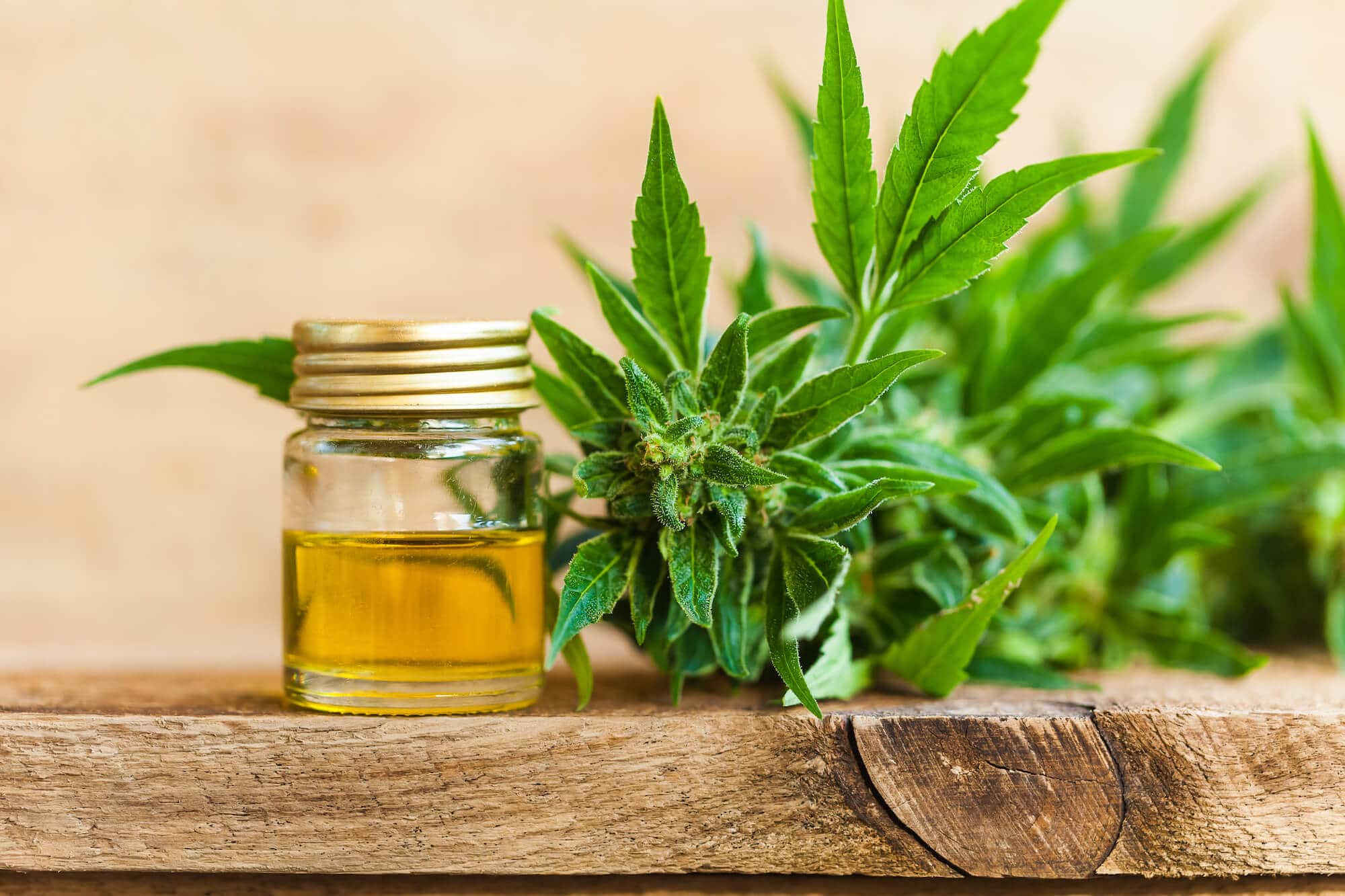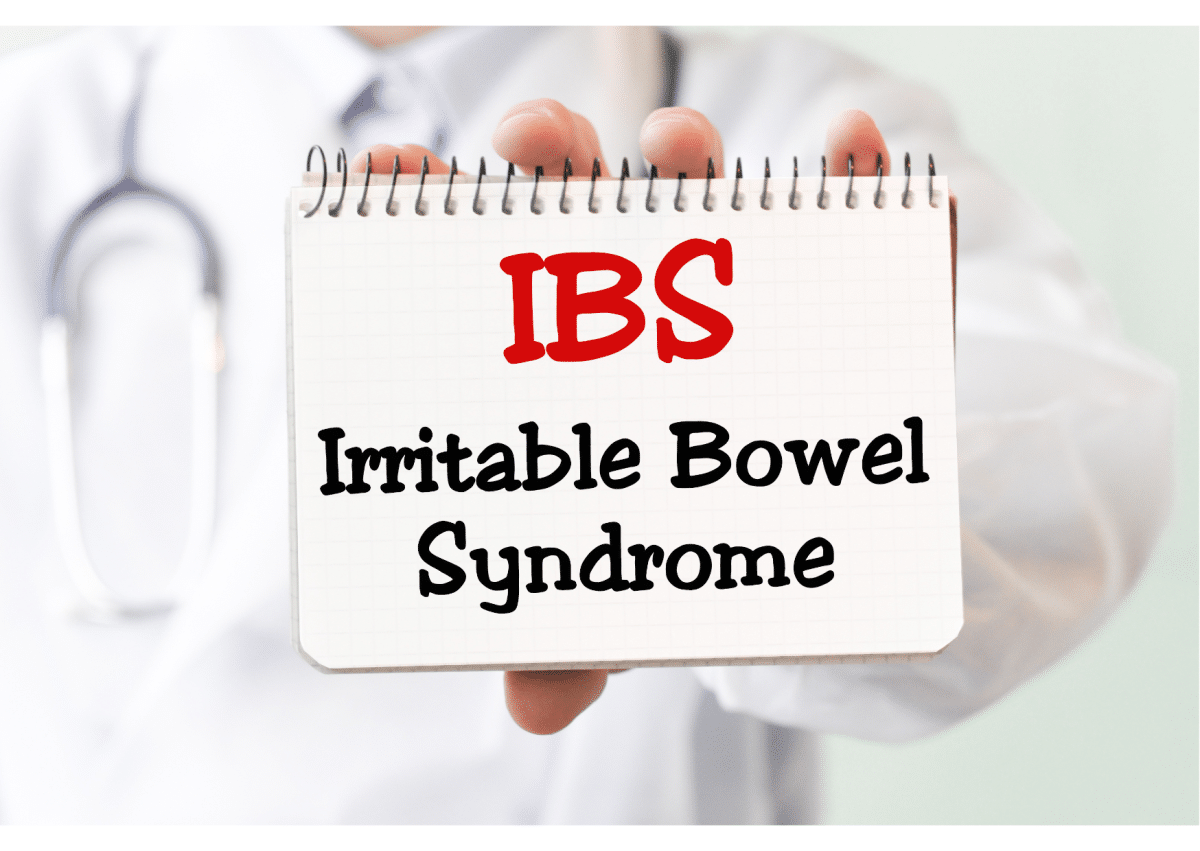CBD oil for IBS – Does it work?
- Supplements
Have you wondered if you could take CBD oil for IBS? CBD oil is increasingly available as a food supplement from health stores.
CBD oil has also gained popularity as ‘it’ claims to be a natural remedy for many to manage symptoms of IBS. But is there any supporting evidence behind these claims?
In this article, we will discuss how CBD can affect the gut, the evidence behind the use of CBD oil for IBS, the possible side effects, and advice on whether you should be taking it for your IBS.

What is CBD oil?
CBD (cannabidiol) oil comes from hemp, a plant species of the Cannabis sativa. It contains over 100 chemicals known as cannabinoids (1).
You often hear about two predominant cannabinoid compounds: CBD and THC (delta-9-tetrahydrocannabinol).
THC induces psychotropic effects that make people feel ‘high’, whereas CBD does not. Most countries restrict the THC concentration in hemp extract utilized for CBD oils to 0.3%.
You can read more about: ‘Marijuana and IBS: exploring the potential benefits’.
How does CBD oil affect the gut?
Researchers have used CBD to study its effects on our endocannabinoid system (ECS). This is a network of chemical signals and cell receptors in our body.
There are many cannabinoid receptors in our digestive system and along the gut-brain axis (2).
Certain cannabinoids can activate these receptors in our gut. They can reduce motility (movement), limit secretion, and decrease hypersensitivity in the gut (3).
Studies suggest that an imbalance in our endocannabinoid system may contribute to gut disorders such as inflammatory bowel disease (IBD) and IBS (4).
You can read more about what is the difference between IBS and IBD here.
Can you use CBD oil for IBS?
We know that hypersensitivity and gut motility are two issues that may play a role in causing IBS symptoms.
Cannabinoid receptors might interact with nerve cells involved in pain. Many people with IBS experience heightened pain sensitivity.
So, influencing these receptors could potentially ease discomfort (6).
The gut-brain axis plays a considerable role, and over 38% of people with IBS suffer from anxiety (7).
You can read more about ‘Stress, anxiety, depression and IBS: managing mental health to help IBS’ here.
Cannabinoids can affect anxiety levels depending on the dose. So they may help to alleviate these symptoms (8).
You can find more detailed information in the ‘Anti-anxiety properties’ section of our: ‘Marijuana and IBS: Exploring the potential benefits’ post.

Is CBD oil good for IBS-D?
Gut motility is often sped up in people with IBS-D, resulting in more frequent bowel movements. Two studies specifically examined the effects of CBD on gut motility (9, 10).
However, the results are conflicting.
One of the studies examined 75 people with various types of IBS. Researchers gave the participants dronabinol (a type of cannabinoid).
Those with IBS-D experienced an improvement in their gut motility (11).
Another study done by the same researchers looked specifically at people with IBS-D. Interestingly, the same dose of dronabinol did not improve gut motility (12).
While these studies are interesting, they only tested individuals once before and after a 1000 calorie meal.
So we cannot predict how valid the results will be in the long-term management of IBS.
Although CBD shows potential benefits in treating specific IBS symptoms, there is not strong enough evidence to firmly declare that CBD oil can help with IBS.
What is the recommended dose and duration of CBD oil for IBS?
As there is not enough research to support the use of CBD oil for IBS, it is unclear what dosage or how long to take it to help with IBS symptoms.
CBD oil is legal in the UK when it contains no more than 0.2% THC.
The UK Food Standards Agency (FDA) advises people to limit CBD consumption to 10 mg daily for healthy adults (approximately 4-5 drops of 5% CBD oil) (13).
In the US, CBD oil from hemp is generally legal, but the specific rules vary between states (14).
It is important to note that certain CBD oil products available on the market will have a dose higher than the recommended.
CBD oil for IBS: Safety and side effects
The World Health Organization (WHO) reports people generally tolerate CBD well (15). However, it is possible to experience side effects from CBD, such as (16):
- Decreased appetite
- Diarrhea
- Dizziness
- Feeling sick
- Mood change
Note: This is not an exhaustive list.
Interestingly, it has listed diarrhea as one of the side effects of CBD. One study has also shown that the severity of side effects may increase when taking CBD with a high-fat meal (17).
CBD may also interact with other medications (18). So please speak to your doctor before trying any CBD oils.
Is CBD used in other areas of medicine?
Currently, the UK NICE guidelines recommend prescription cannabis-based products for people with (19):
- Nausea and vomiting due to chemotherapy
- Multiple sclerosis
- Severe forms of epilepsy
- Chronic pain (as part of a clinical trial)
However, healthcare providers only consider these options when other treatments have proven ineffective (20).
Summary
As CBD oil is becoming widely available, many people turn to it as a potential remedy for IBS symptoms.
Although one study suggests that CBD oil may help with IBS-D, it was only done in a snapshot with a small number of participants. So, the long term use of CBD oil on IBS is unknown.
It is also important to consider potential side effects such as diarrhea. Always speak to your doctor about possible interactions with other medications before using CBD oil.
Given the lack of strong evidence, I would not recommend CBD oil to help manage your IBS symptoms.